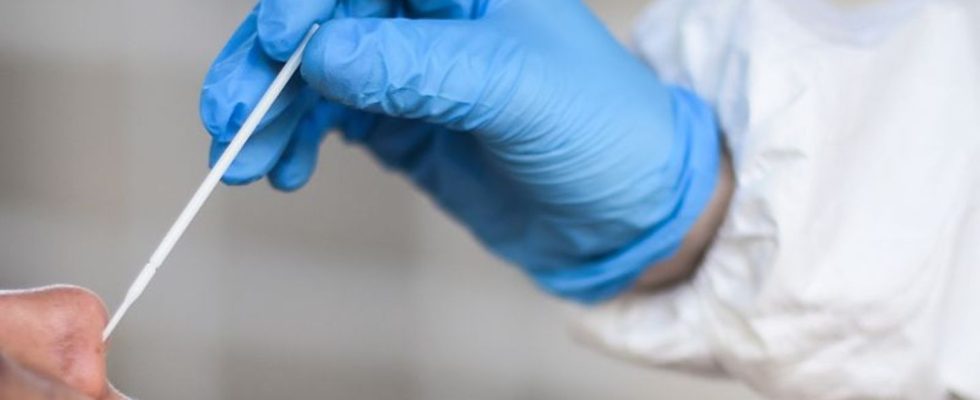corona
RKI: Evidence of decline in Covid-19 activity
Corona infections are declining. (archive image) photo
© Kira Hofmann/dpa-Zentralbild/dpa
The numbers in Germany seem to be falling for respiratory diseases such as Corona. This is reported by the Robert Koch Institute. However, caution should be exercised when evaluating the data.
In total, the RKI assumes around 4.6 million acute respiratory illnesses last week, regardless of a visit to the doctor. That is significantly less than before Christmas, when this value was sometimes just under nine million. However, the level is still slightly higher than at the beginning of 2023. Overall, the high number is due not only to Corona but also to flu and RSV (respiratory syncytial virus). According to the report, children under two years of age in particular have been hospitalized with RSV.
More clarity after the end of the school holidays
Regarding the flu wave, which has now begun, the team of authors points out that the development can only be better assessed in the coming weeks. Because last few weeks most federal states still had school holidays. The RKI says that so far it has mainly been school-age children and young adults who have contracted influenza. Influenza A(H1N1)pdm09 is most frequently found in random virological examinations. This subtype first appeared during the 2009 flu pandemic: as so-called swine flu. According to the RKI, it has been circulating seasonally in Germany since then, most recently significantly in the 2018/19 season.
Dominant Corona variant
When it comes to Corona, a variant called JN.1 dominates in Germany: According to the most current available RKI figures, when samples were examined, it was already at 59 percent in mid-December. It is another descendant of the Omicron variant. Compared to the parent line BA.2.86 (also known as Pirola), JN.1 has an additional mutation in the spike protein that the virus uses to invade human cells.
The World Health Organization (WHO) has been listing JN.1 separately as a so-called variant of interest for several weeks, after it had previously only been considered part of the parent line, which was classified in the same way. BA.2.86 caused a stir due to very strong genetic changes compared to other corona variants. The reason for the separate WHO classification of JN.1 was its rapid international spread.
Situation in the intensive care units
After the holidays, during which many infections were feared, there are no signs of the situation worsening in German intensive care units. Of the around 14,280 people who are currently being treated there, around 670 are infected with Sars-CoV-2, said Gernot Marx, Vice President of the Divi Intensive Care Medicine Association, upon request. In mid-December there were almost twice as many.
“We currently believe we have the virus under control. Of course we are vigilant, but not very worried,” said Marx. Covid-19 has been a problem for older citizens for many months, most of whom also have other illnesses. This explains the difficult course of events. The intensive care physicians therefore supported the recommendation of the Standing Vaccination Commission (Stiko), according to which people aged 60 and over should be vaccinated against flu and corona.
In an initial assessment of JN.1, the WHO classified the risk to public health as low based on the initially limited data available. Increased cases were expected – especially in countries where it is winter. However, the WHO did not expect the basic immunity in the population and the booster vaccines currently used to provide protection against severe disease to fail.

